What a ride we’ve been on with dysphagia, everyday we learn something new on managing dysphagia symptoms It’s so hard to deal with emotionally and physically for me, as a dementia caregiver, and for mum living with Alzheimer’s disease. It’s about time I shared an update and give you some dementia caregiver tips for managing dysphagia that have helped us.
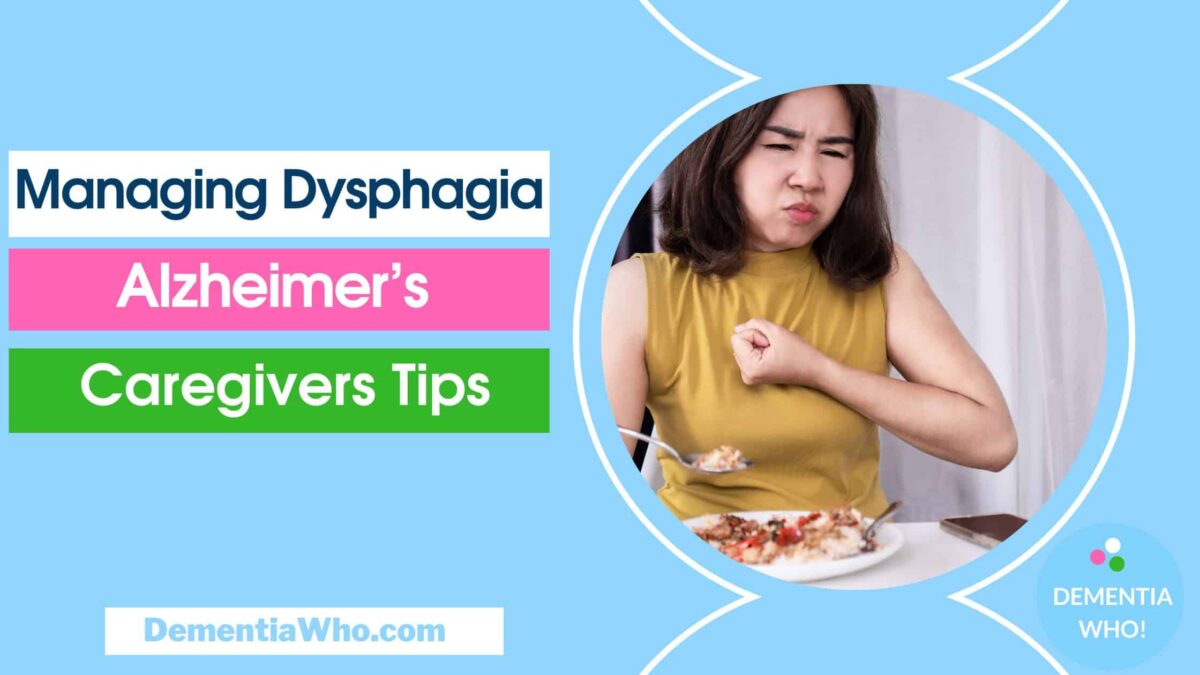
Understanding Dysphagia in Alzheimer’s – An Update
My mum’s struggles with drinking and eating continue as her Alzheimer’s worsens. Dysphagia is when someone has difficulty swallowing food or drink, often occurring as dementia progresses. Neurological changes caused by Alzheimer’s disease can affect the parts of the brain that control swallowing, as well as simply forgetting what to do with food in your mouth. There other factors as well that can result in dysphagia.
Related: Spluttering Back to Life: A Personal Journey Navigating Dementia and Dysphagia
I see this daily with mum. Every time she takes a drink, she holds it in her mouth for what seems like a long time, then remembers to swallow, taking a big gulp. Mum never gulped before. You hear her swallow, and it sounds painful, but I hope it’s not. Then it’s wait time—did this swallow cause her to cough? The main symptom mum experiences with dysphagia is coughing, along with a gurgling, wet sound when she talks. A few seconds or minutes later, she scrunches up her face, struggles to breathe, and starts coughing and spluttering, unable to stop or catch her breath. It’s distressing and either ends with her sneezing or coughing up phlegm.
The difficulty is when she doesn’t clear her throat properly. I try to help her, but she can’t manage it, even when I show her how. The same applies to blowing her nose. When she tries, it lacks power, so nothing really comes out.
Managing Dysphagia at Home
My last resort is patting her back to help lift the cough from her chest, but then she blames me for hitting her. So now I just rub her back, which isn’t as effective. So prevention is the key thing for me, working on different textures, fluid thickness to find the right consistency for mum to tolerate it.
Fluids are a particular problem for mum. Fluids are key for mum as it helps prevent dehydration & a host of other problems like UTIs, constipation etc
Mum isn’t interested in her food or drink anymore, which isn’t surprising given how traumatic it is for her. She doesn’t look at her food, so I help guide the spoon to her mouth. Slowing down her eating and controlling portion size was a recommendation from mum’s Speech and Language Therapist to help reduce her dysphagia symptoms.
In the last week, mum has struggled the most. Almost every time she drinks, she ends up coughing her guts out, tears in her eyes, her nose streaming, and in complete distress. We tried smaller portions, softer foods, and thickened drinks. Today, I managed to control it by increasing her thickener to the third level, making her drinks move like sludge. It’s disgusting, but it seems to work and reduces the frequency of coughing.
Seeking Professional Help
I don’t feel as powerless as I did when mum first started to experience dysphagia, as I know so much more on how to deal with it, but I do need further help.
So I’m waiting on another referral to the Speech and Language Therapist for more advice. My biggest fear is mum aspirating on some food, leading to a chest infection or pneumonia. The situation is terrifying, especially at night when mum is unable to clear her throat at all. Recently, she held fluid in her throat, sounding like she’s drowning. I’m scared most nights, so I now raise her bed head so that fluid doesn’t stay in her throat, and she sleeps mostly in an upright position (thank god we have a hospital bed).
These are scary times. I’m overly stressed, and I think the distress has worsened her dementia.
Understanding the Impact on Dementia Caregivers
As a dementia caregiver, managing dysphagia in a loved one with Alzheimer’s is both physically and emotionally exhausting. The constant vigilance required to ensure a loved one doesn’t choke or aspirate can take a toll on your mental health. The fear of a medical emergency is always present, especially at night. The emotional strain is so much worse as you watch your loved one struggle with something as fundamental as eating and drinking.
The stress and anxiety is getting to me. I recognize these feelings and look for support from family and other caregivers. Online forums and support groups are also particularly helpful. If it gets too much then I might get counselling again. If you haven’t tried it, think about getting professional counselling as it might be beneficial to help you cope with the emotional burden.

Managing Dysphagia Tips for Dementia Caregivers
Here are some practical tips for dementia caregivers for managing dysphagia in loved ones with Alzheimer’s, things that have helped me so far.
Ensure Upright Positioning
Ensure your loved one is sitting as upright as possible during meals and for at least 30 minutes afterwards. Use pillows for support or an adjustable backrest. If your loved one is bed bound, consider using an adjustable bed backrest or positioning wedges or the more expensive option of a mattress elevator (see if your OT can supply one!) to keep them upright.
Eat Slowly
Encourage eating slowly and taking small bites. This helps prevent choking and makes swallowing easier. Use a smaller spoon to help control portions and pacing. We added padding to the spoon or you can buy adaptive cutlery to make it easier for your loved one to hold it themselves.
Minimise Distractions
Turn off all distractions like TV or radio during meals so your loved one can focus on eating. Use contrasting plate colours and good lighting to help them see the food clearly. This can improve their ability to eat independently and reduce confusion.
Track Meals
Keep a food diary to track successful meals and note any reactions like coughing or breathing difficulties. This information can be valuable when discussing your loved one’s condition with healthcare professionals. It can help identify patterns and triggers, allowing for better management strategies.
Modify Food Textures
Keep food soft and serve it with sauces or gravy to make swallowing easier. Avoid mixing solids and liquids, such as yoghurt with lumps or soups with bits. Steer clear of stringy foods like melted cheese, celery, and foods with pips or seeds. Ensure food is appropriately prepared to minimise the risk of choking.
Offer Frequent, Small Meals
Offer smaller, more frequent meals to avoid overwhelming your loved one. This can help them eat more comfortably and reduce the risk of choking. Finger foods can be a good option if your loved one struggles with utensils. Here’s an excellent recipe book by Dorset HealthCare University NHS Foundation Trust – Tips for Dysphagia Cooks at Home
Provide Patience and Encouragement
Be patient and offer encouragement during meals. Use verbal and visual cues to help your loved one understand what to do. Ensure all food is swallowed and not held in the mouth. Hand-over-hand techniques can help guide them and make the process smoother. Check the mouth is clear after eating, and ensure good oral hygiene.
Plan Meals Around Alert Times
Plan meals around the times when your loved one is most alert and receptive. This can help them eat more effectively and reduce frustration. Monitor their alertness patterns and adjust meal times accordingly.
Educate yourself and Brush Up on First Aid Skills
Brush up on first aid skills and learn how to handle choking incidents. Educate yourself on dysphagia and the various levels of severity. Working with medical specialists can provide you with valuable insights and techniques to manage the condition effectively.
Addressing Emotional and Social Needs
It’s important to address the emotional and social needs of your loved one with Alzheimer’s. The frustration and distress your loved one may feel due to dysphagia can be overwhelming. Offering emotional support and ensuring your loved one feels heard and understood is crucial. Engage in activities that bring them joy and a sense of normalcy, even if it’s something simple like a favourite music playlist or a walk in the garden.
Utilise Medical Support
Seek specialist medical help from a Speech and Language Therapist, Occupational Therapist, or your doctor. They can assess your loved one’s swallowing abilities and provide specific recommendations. They may suggest exercises to strengthen the swallowing reflex or adjustments to food and drink consistency as well provide advice on how to prepare food, and what to avoid.
Challenging Times
Living with dysphagia in Alzheimer’s disease is challenging for both your loved one and for you as a dementia caregiver, as you have seen from our personal experience. By understanding the condition, seeking professional advice, and implementing practical tips, you can manage dysphagia more effectively and improve your loved one’s quality of life. Remember, you’re not alone in this journey. Reach out for support when needed, that’s what I’m doing, and take care of your own health and well-being as you care for your loved one.




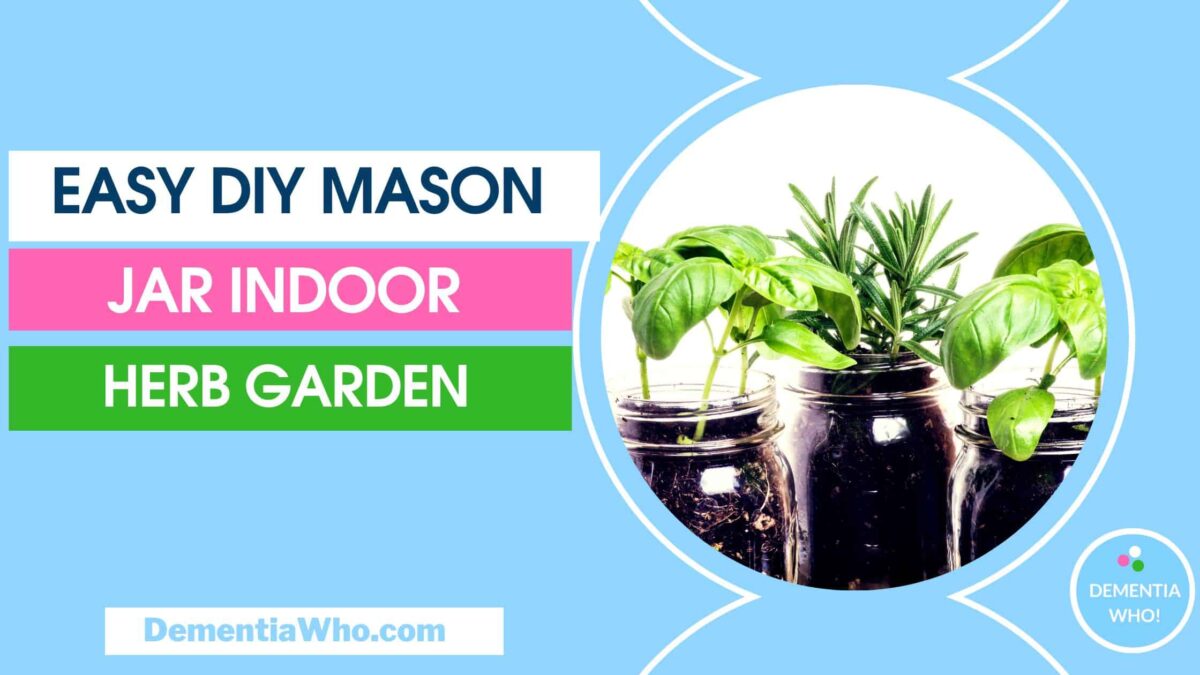



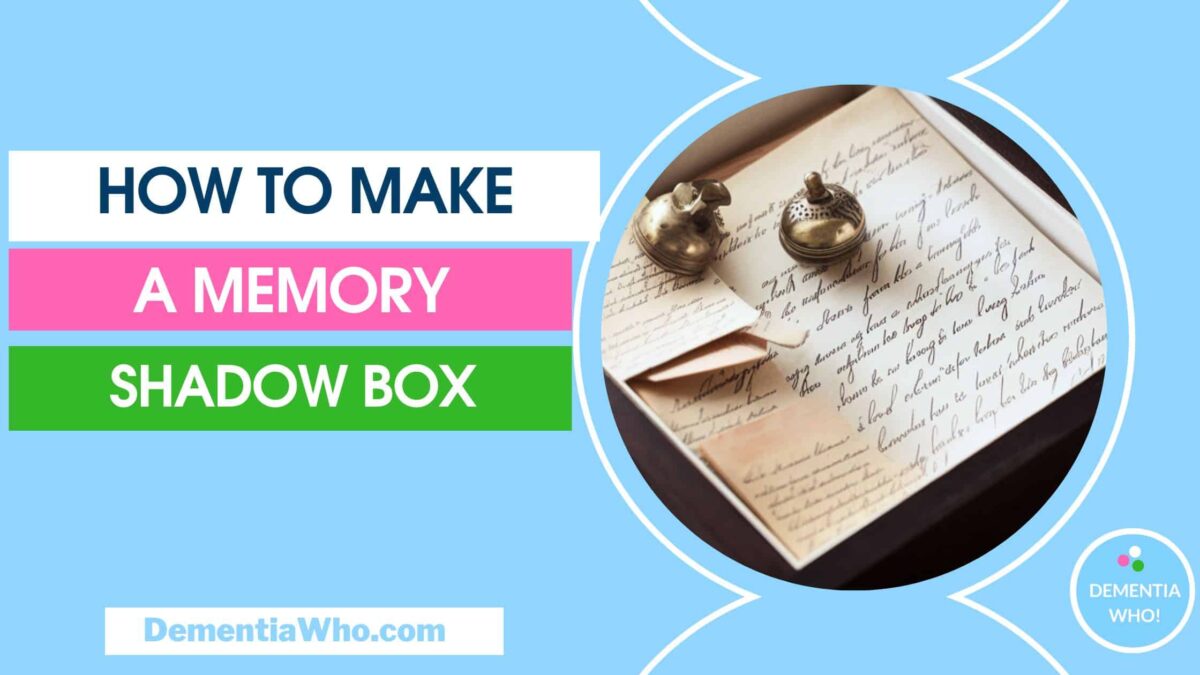
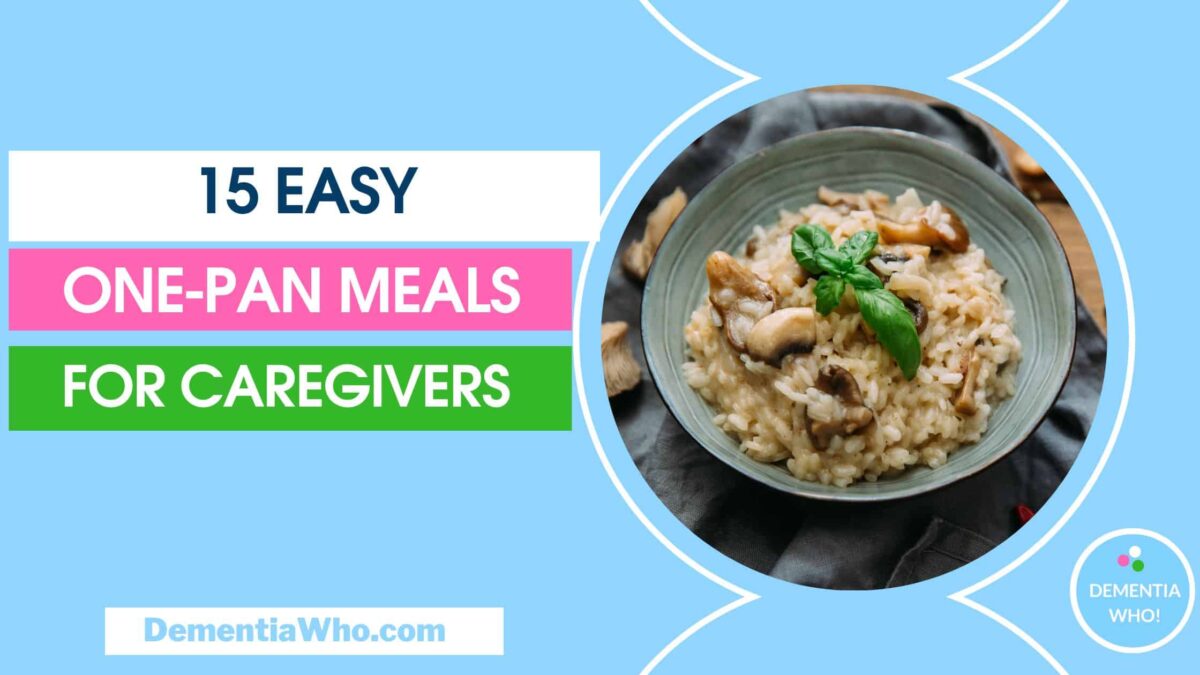
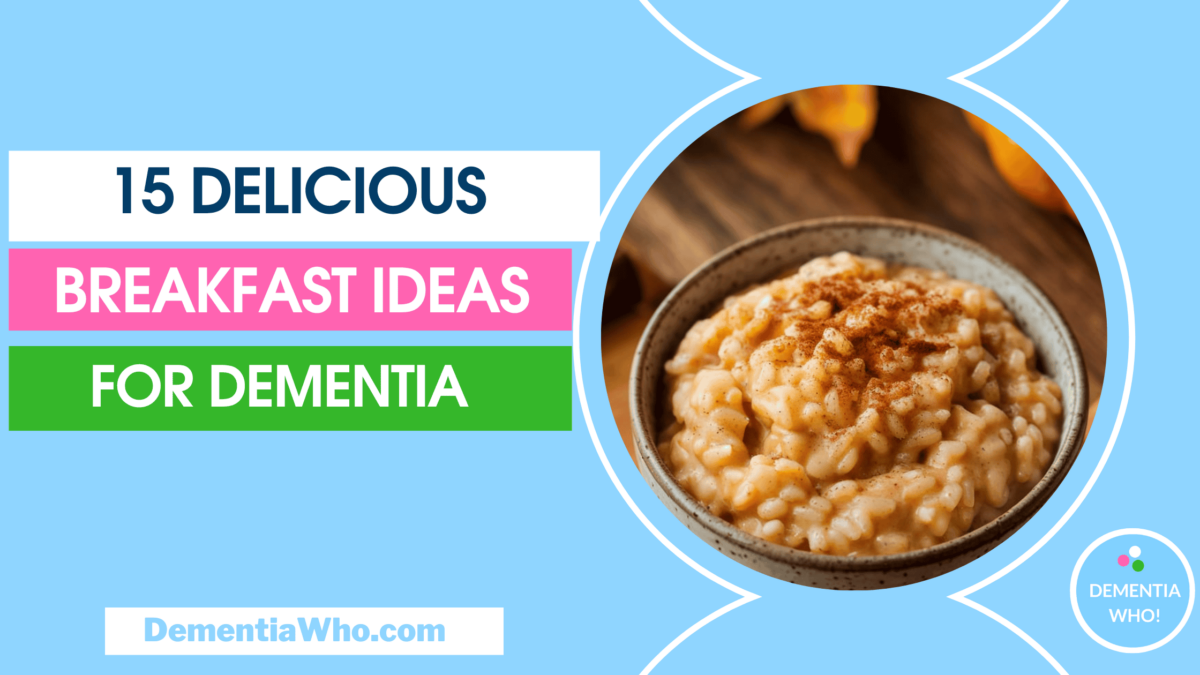

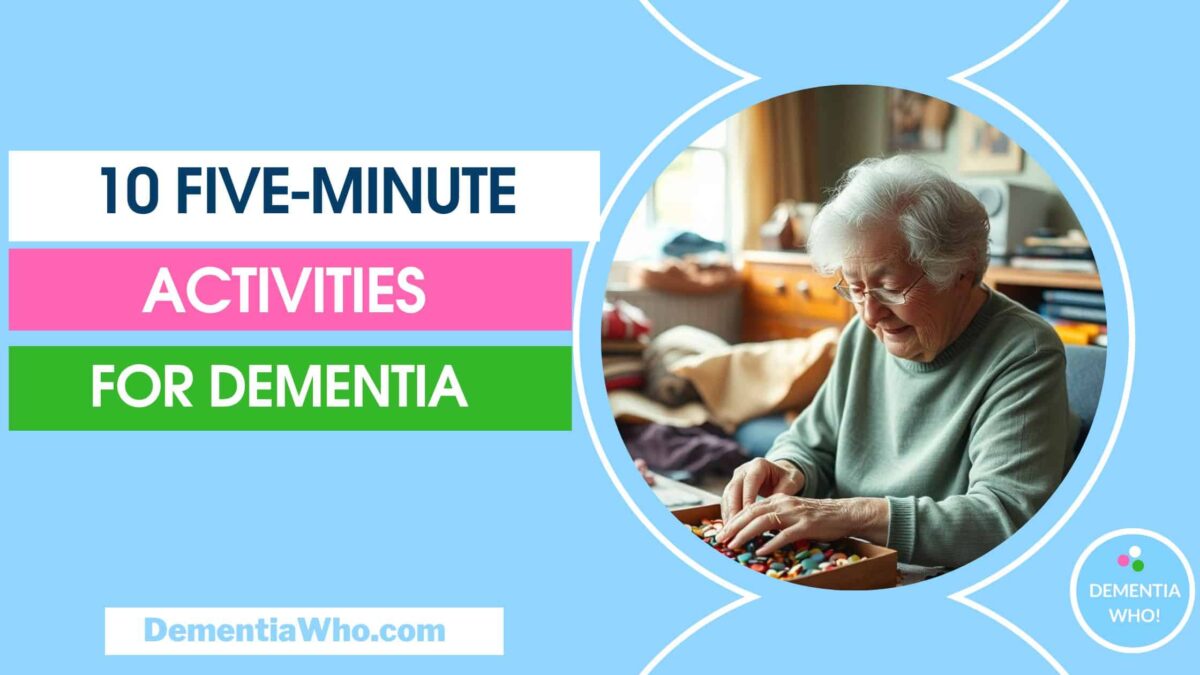








Man, that’s a lot for you both to go through. If you don’t know you are amazing at your job, I’m here to tell you, “Dementia Who, you are amazing at your job.”
Thank you Kitty, I hoping that the SALT referral and antibiotics that the doc has prescribed for possible chest infection help. Thank you for taking the time to comment and share such lovely encouraging words.